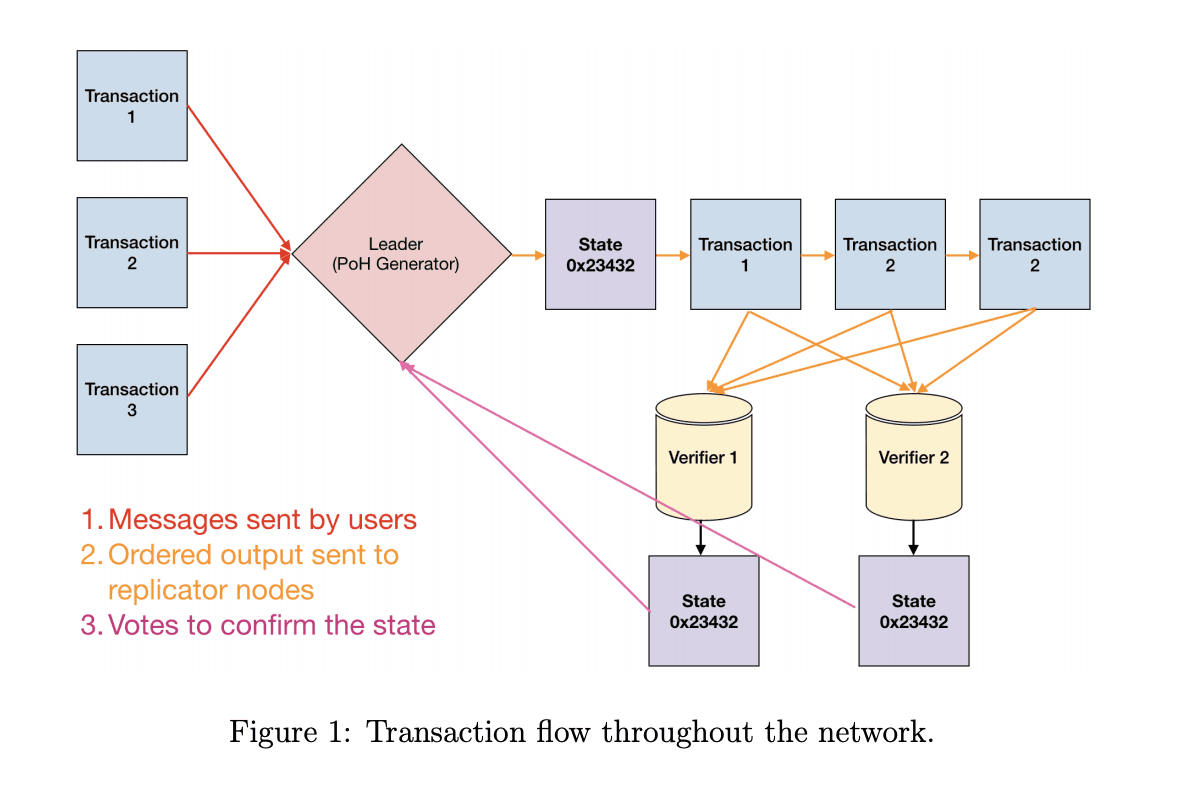What is Solana’s Proof of History?
Yakovenko and the Solana team found a way to utilize that method in a blockchain-based system by using a similar mechanism to the nLocktime feature that can be found in the original blockchain protocol – Bitcoin. NLocktime allows for postdate transactions using block height instead of timestamps. As it turns out, this is a cryptographically-secure way to show that time has passed.
The same principle is used to power Solana’s key innovation – the novel Proof of History algorithm. However, the Solana team has refined the approach by using a much more granular verifiable delay function, a SHA 256 hash chain, which is used to checkpoint the Solana ledger and coordinate consensus. Essentially, this method assigns a cryptographic clock to every transaction.
According to Solana, thanks to this method, the protocol could theoretically reach 710,000 transactions per second, or the theoretical limit of a 1GB centralized network.
10
90 reads
CURATED FROM
IDEAS CURATED BY
The idea is part of this collection:
Learn more about crypto with this collection
The differences between Web 2.0 and Web 3.0
The future of the internet
Understanding the potential of Web 3.0
Related collections
Similar ideas to What is Solana’s Proof of History?
What makes Solana unique?
One of the essential innovations Solana brings to the table is the proof-of-history (PoH) consensus developed by Anatoly Yakovenko.
Solana is known in the cryptocurrency space because of the incredibly short processing times the blockchain offers. Solana can proces...
Read & Learn
20x Faster
without
deepstash
with
deepstash
with
deepstash
Personalized microlearning
—
100+ Learning Journeys
—
Access to 200,000+ ideas
—
Access to the mobile app
—
Unlimited idea saving
—
—
Unlimited history
—
—
Unlimited listening to ideas
—
—
Downloading & offline access
—
—
Supercharge your mind with one idea per day
Enter your email and spend 1 minute every day to learn something new.
I agree to receive email updates
